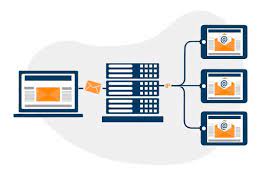Table of Contents
Dedicated IP address refers to a unique numerical label assigned exclusively to a particular hosting account or domain on a server. In contrast to a shared IP address, where multiple domains share the same IP, a dedicated IP is reserved for a specific entity.
Dedicated IP’s are exclusively assigned to a specific device or user instead of shared among multiple devices or services. This means the addresses don’t reset or get assigned to other users. The downside of this is that dedicated IP addresses cost extra.

Features of IP address:
- Isolation: It provides isolation for your website or application. This means that the actions or behavior of other websites sharing the server won’t impact your site’s performance or reputation.
- SSL Certificate: One of the primary reasons for having a dedicated IP is to enable the use of SSL (Secure Sockets Layer) or TLS (Transport Layer Security) for secure data transmission. SSL certificates often require a dedicated IP to function properly. This is especially relevant for e-commerce websites or any site that handles sensitive information.
- Email Deliverability: Some email services and spam filters consider the reputation of the IP address when determining whether to mark an email as spam. A dedicated IP can help improve email deliverability by ensuring that your emails are not affected by the reputation of other users on the same server.
- FTP Access: Having a dedicated IP address can simplify FTP (File Transfer Protocol) access to your website. It allows you to connect to your server using the IP address directly rather than the domain name.
- Domain Access During DNS Propagation: When changes are made to DNS (Domain Name System) settings, it may take some time for the changes to propagate across the internet. Having a dedicated IP allows you to access your website using the IP address directly during this propagation period, ensuring uninterrupted service.
- Improved Server Access: For certain server configurations or applications, having a dedicated IP can make it easier to set up and manage specific services, especially if those services rely on the IP address for identification.
- Geolocation Considerations: In some cases, having a dedicated IP may be important for geolocation purposes. If you need your website to be associated with a specific geographical location, a dedicated IP address can play a role in that.
- SEO Implications: While having a dedicated IP address is generally not a significant factor in search engine optimization (SEO), there are some discussions about whether IP sharing affects SEO. However, it’s important to note that search engines primarily consider the content and relevance of a site rather than the type of IP address it uses.
Different types of IP addresses:
There are different types of IP addresses, which are further subdivided into different categories.
1.Consumer IP address
2.Website IP address
Benefits of a dedicated IP address:
1. Secure remote access:
A dedicated IP address allows employees to connect to company resources securely. It enables you to control access to specific resources and sensitive company assets. You can do this by allowing specific IP addresses and restricting access to servers and gateways you choose.
2. Reduced risk of IP blacklisting:
Another benefit is safety and location privacy. Some people prefer it when they can’t be traced.
While sharing an IP address is generally safe, it risks country-specific blocking of your website
3. Faster and safer file transfer:
It ensures faster site speeds. You don’t have to contend with web traffic because you’re the only one using the IP address.
It also allows you to build a file transfer protocol (FTP) server to share files within an organization. A private FTP server offers better protection and a faster file transfer rate.
It’s worth mentioning that, in many cases, websites can operate perfectly well on a shared IP address. It also often necessary for specific requirements, such as SSL support, and may not be essential for all websites. Additionally, some hosting providers may include a dedicated IP as part of certain hosting plans, while others may offer it as an optional add-on.